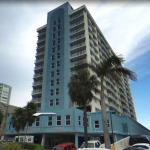Reinsurance at the heart of today’s concerns
 Another Florida property insurance company is declared insolvent by state regulators, expectations of up to a 50% increase in reinsurance costs for the rest of the market’s carriers at June renewal, concerns that higher premiums will force condo owners out of their homes, and two significant rulings on public adjusters and claims, plus a final goodbye (at least for now) to an infamous plaintiff attorney. It’s all in this week’s Property Insurance News.
Another Florida property insurance company is declared insolvent by state regulators, expectations of up to a 50% increase in reinsurance costs for the rest of the market’s carriers at June renewal, concerns that higher premiums will force condo owners out of their homes, and two significant rulings on public adjusters and claims, plus a final goodbye (at least for now) to an infamous plaintiff attorney. It’s all in this week’s Property Insurance News.
 UPC Insolvency: United Property & Casualty Insurance Company (UPC) of St. Petersburg has become the seventh Florida domestic insurance company to become insolvent in the past 13 months. UPC went into a regulated policy run-off this past December with another carrier picking up 72,000 of its 135,000 policies since then. But on February 10, UPC announced claims from Hurricane Ian had taken a heavier toll than expected, increasing from an original estimated $1 billion in gross losses to $1.54 billion by the end of 2022. Regulators last Thursday began proceedings to place UPC into receivership, noting the company has had net underwriting losses of more than $35 million each year since 2017.
UPC Insolvency: United Property & Casualty Insurance Company (UPC) of St. Petersburg has become the seventh Florida domestic insurance company to become insolvent in the past 13 months. UPC went into a regulated policy run-off this past December with another carrier picking up 72,000 of its 135,000 policies since then. But on February 10, UPC announced claims from Hurricane Ian had taken a heavier toll than expected, increasing from an original estimated $1 billion in gross losses to $1.54 billion by the end of 2022. Regulators last Thursday began proceedings to place UPC into receivership, noting the company has had net underwriting losses of more than $35 million each year since 2017.

© Can Stock Photo / radiantskies
More Reinsurance Needed: UPC had been in a policy run-off because it couldn’t find reinsurance for the 2023 hurricane season that starts June 1. Much of its extra $540 million in Ian losses reportedly will be covered by reinsurance. We’ve reported here on the lack of availability and affordability of reinsurance for Florida carriers despite the two new reinsurance programs the legislature created in its 2022 property insurance market reforms. Our respected colleague John Rollins, former Chief Risk Officer at Citizens Property Insurance told WFLA-TV that Florida property reinsurance rates are expected to jump 40% to 50% in June.
As of this newsletter we have not seen any formal proposals filed in the legislature that would create a temporary reinsurance bridge designed to reduce the cost of reinsurance, which has a direct correlation to the cost of a homeowners policy. We remain hopeful that the legislature will heed the concerns of their constituents whose insurance rates continue to rise despite the May and December 2022 Special Sessions. Some say reforms take 18 to 24 months to take hold but reinsurance reforms will be effective in just a few months. Former state Senator Jeff Brandes recently tweeted, “A reinsurance tsunami is about to hit Florida. The state has worked to fix the broken insurance market but is now facing an existential threat of companies not being able to purchase adequate reinsurance.”

Condo Rates Concern: I had the privilege of being a panelist with Rosenbaum PLLC for a webinar attended by condominium board members, property managers, and others who wanted to better understand the state of affairs in the Florida property insurance market. In a nutshell, the audience wanted to know what they could do about commercial residential insurance premiums increasing, as an example, from $250,000 last year to $750,000 this year that they fear will force unit owners out of their homes. Many were angry, others resigned to the increase, and still others bracing themselves for even more increases. The 75-minute webinar can be viewed here. Please let us know your feedback so we can continue to educate those directly affected by increasing rates with what appears to be little appetite by the legislature to address the anticipated June 1 reinsurance crisis.
 Court Rulings: Another factor contributing to Florida’s out-of-sync homeowners insurance market is the practice by some public adjusters to also serve as a disinterested appraiser in a property damage claims dispute. The Florida Supreme Court last week finally settled the issue, ruling that a public adjuster cannot also act as an appraiser for a homeowner they represent, when the insurance policy requires a “disinterested” appraiser. More in the Insurance Journal. Meanwhile, Florida’s Fourth District Court of Appeal has ruled that Family Security Insurance doesn’t have to turn over its claim file to a policyholder in a claims denial dispute. The court noted that materials generated during an insurance company’s investigation of a claim are generally considered a protected work product, including in this case, “the field adjuster’s loss report, non-final estimate and supporting documentation.”
Court Rulings: Another factor contributing to Florida’s out-of-sync homeowners insurance market is the practice by some public adjusters to also serve as a disinterested appraiser in a property damage claims dispute. The Florida Supreme Court last week finally settled the issue, ruling that a public adjuster cannot also act as an appraiser for a homeowner they represent, when the insurance policy requires a “disinterested” appraiser. More in the Insurance Journal. Meanwhile, Florida’s Fourth District Court of Appeal has ruled that Family Security Insurance doesn’t have to turn over its claim file to a policyholder in a claims denial dispute. The court noted that materials generated during an insurance company’s investigation of a claim are generally considered a protected work product, including in this case, “the field adjuster’s loss report, non-final estimate and supporting documentation.”
 Scot Strems: We reported in January that serial litigator Scot Strems was disbarred by the Florida Supreme Court. Since then, Strems wrote the court asking the justices to reconsider and instead suspend him for three years and make it retroactive to June 2020. The Florida Bar’s Derek Womack, who pursued disbarment of the infamous poster child for excessive property insurance litigation, filed a response, noting “A motion for rehearing is not an open invitation for an unhappy litigant or attorney to reargue the same points previously presented.” The Court last week agreed, denying Strems’ motion for rehearing.
Scot Strems: We reported in January that serial litigator Scot Strems was disbarred by the Florida Supreme Court. Since then, Strems wrote the court asking the justices to reconsider and instead suspend him for three years and make it retroactive to June 2020. The Florida Bar’s Derek Womack, who pursued disbarment of the infamous poster child for excessive property insurance litigation, filed a response, noting “A motion for rehearing is not an open invitation for an unhappy litigant or attorney to reargue the same points previously presented.” The Court last week agreed, denying Strems’ motion for rehearing.
LMA Newsletter of 2-20-23

